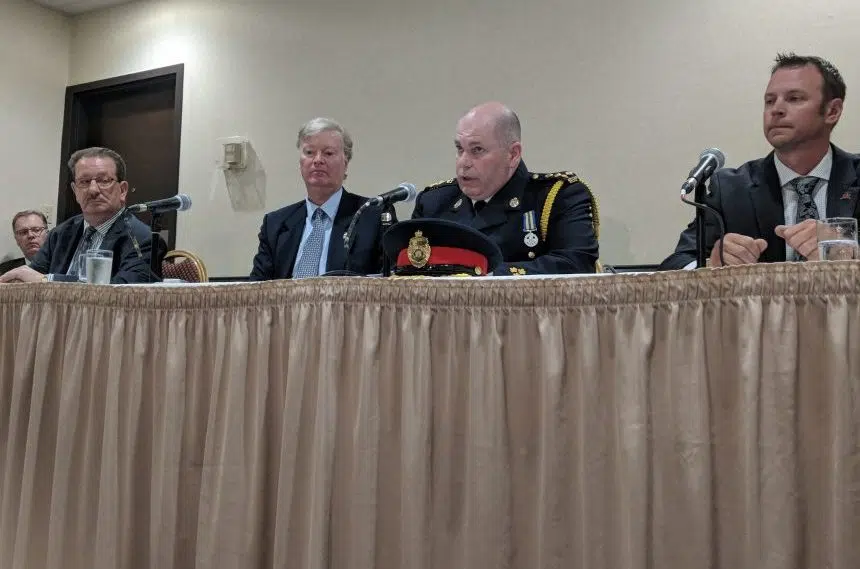They’ve been referred to as street checks or carding by some police services across Canada, — now police in Saskatchewan have unveiled a new policy on what they’re now calling contact interviews.
The Saskatchewan Police Commission has approved the policy which states officers can conduct these interviews when they have a reason that’s beyond just friendly social interaction; if they have some concern and are looking to gather information not related to a known crime.
“If an officer is driving through a neighbourhood and has a mental reason in their mind of ‘Something’s up here, I’m going to stop and inquire,’ whether it be a concern for the welfare or a concern of public safety, I think that’s where you move into the process of the policy,” explained Estevan police Chief Paul Ladouceur, who also represents the Saskatchewan Association of Chiefs of Police.
The policy outlines how these interactions are purely voluntary. People don’t have to speak with police, they are free to walk away and can refuse to hand over identification. They can’t be charged in this regard.
Contact interviews also can’t be conducted randomly or based solely on things like someone’s race or ethnicity.
While Ladouceur said he believed street checks or carding weren’t extensive problems in Saskatchewan, it is an issue that both Regina and Saskatoon police services have commented on in recent years. It’s also something that has been raised as a concern by some within the public.
Commission chair Neil Robertson used the example of an individual who might be on the University Bridge looking out. He said they might simply be enjoying the view or they may be considering self-harm. The policy encourages officers to stop and talk to that individual.
“While the policy is new, the practices it promotes are not,” said Robertson. “The commission wants police officers talking to people in the community.”
Regina Police Sergeant Casey Ward, who also serves as the president of the Saskatchewan Federation of Police Officers and president of the Regina Police Association, said officers talk to people every day, adding it’s what the public wants.
“There’s someone at three o’clock in the morning in a residential area where there’s been a lot of break and enters, and someone’s walking around with a backpack, and a police officer drives by. Everyone here thinks that the police officer should probably stop and talk to that person? Obviously, right, you want to know what they’re doing there,” Ward said hypothetically.
Ladouceur agreed in the value of talking to people, to find a balance between public engagement and respecting the rights of individuals.
“The whole idea of this policy is to allow the police to interact with the community. A lot of criminal activity has been solved by police engagement and interaction with the public and to remove that ability for the police to engage with the community and the public is dangerous,” the chief said.
Information gathered during contact interviews will be recorded and reported to the commission for statistical purposes.







